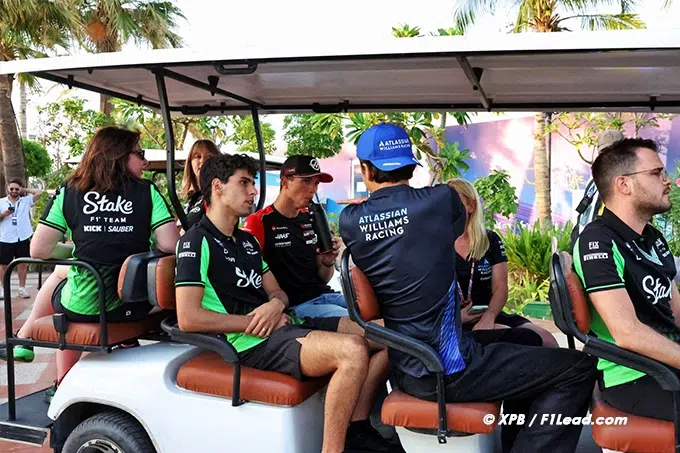F1 drivers debate the future of engine regulations, with a clear shift towards lighter, more sustainable cars, leaving V10 nostalgia behind.
After a recent meeting, opinions on the future of Formula 1’s engine regulations remain divided, with the return of the V10 or V8 atmospheric engines now on hold.
While discussions took place, the decision has been made to focus on the new rules coming in 2026 before considering the introduction of a new engine by 2029. If not, it could be delayed until 2031.
In Jeddah, drivers were asked about the postponement of this decision. Are they disappointed? Eager for the return of these engines?
Alex Albon, driving for Williams F1, shared his thoughts: “Of course, it would be nice. I think most drivers would enjoy having these kinds of engines in our cars. I grew up watching F1 during the early 2000s, and the sound was iconic, no doubt. The cars were also much lighter back then. But it’s going to take time. A lot of manufacturers have made significant investments in the current regulations, so I hope we can revisit this idea later. For now, we’ll just have to wait and see.”
Has Albon ever driven a Williams with a V8 or V10 engine? “No, but I have driven a very old F1 car from the ’80s with a V6 turbo. It wasn’t particularly enjoyable to drive, and I nearly crashed it! But yes, driving a V10 Williams would be a lot of fun. It would be interesting to explore what could be done with renewable fuels. Seb Vettel showed that it’s possible to make it work.”
For Haas F1 driver Oliver Bearman, the issue isn’t the type of engine but the weight of the cars: “The real problem for drivers is the weight. It seems to increase every year. Even next season, with a slightly smaller car, the weight reduction won’t be significant. If you look at cars from 10 or 11 years ago – before the V6 regulations – they were much lighter. That made them more fun to drive. Of course, if we could have V8s or V10s and do it in a sustainable way, that would be ideal. Formula 1 is about introducing new technologies to the road and showing what both machines and humans can achieve. Today’s F1 engines are incredibly efficient, but if we could make the car 100 kilograms lighter, that would be amazing.”
Gabriel Bortoleto, a future Audi F1 driver, has a different perspective. As someone entering F1 with the 2026 regulations, the Brazilian driver is not nostalgic about the past: “The world is moving forward. We need to look towards the future. Returning to the V10 isn’t the best solution for sustainability. Audi is deeply committed to the current regulations, and they’ve discussed it. I think we need to stop looking back. The sound was cool, but we need to focus on other things now.”
As F1 continues to evolve, it’s clear that the conversation is shifting from nostalgia for older engines to a focus on innovation and sustainability for the future of the sport.

- Discover More>Tsunoda’s Bold Plan to Challenge Verstappen at Red Bull
- Follow us on >FACEBOOK and >TWITTERfor F1 update
F1 Drivers Split on V10 Return, Focus Shifts to Weight F1 Drivers Split on V10 Return, Focus Shifts to Weight
